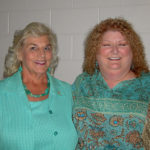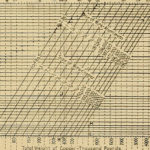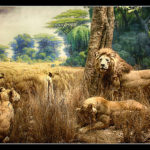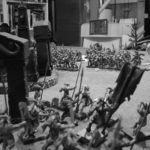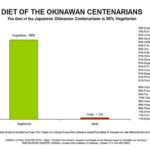Some cool Weight loss images:
Aerobithon – U.S. Army Garrison Humphreys, South Korea – 19 May 2012
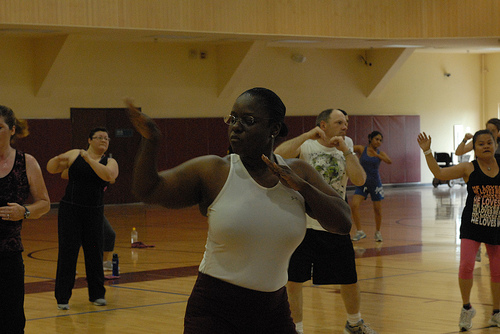
Image by USAG-Humphreys
Click here to learn more about Camp Humphreys
U.S. Army photos by Rakendra Moore
Camp Humphreys hosts aerobithon
By Rakendra Moore
USAG Humphreys Public Affairs
CAMP HUMPHREYS — An aerobithon was held at the Super Gym May 19, with participants dancing, spinning, and jumping their way to better fitness.
“It was great,” said Elvia Palumbo, one of the Zumba instructors for the event. “This was a great way to introduce all of the classes offered in the Super Gym.”
The aerobithon included a warm-up session, followed by Zumba, a stationary bicycle workout and yoga.
“We worked the total body,” said Karen Morton, who organized the aerobithon. “Exercising like this helps you feel better about yourself.”
Morton once weighed 260 pounds, but turned her life around with regular workouts and can now say, “I think I look good for my age.”
Blair Bogle, who also participated in last year’s aerobithon, likewise praised the virtues of diet and exercise.
“Living a healthy life is an everyday thing,” she said.
“I think the energy is high and people are into taking care of their body for a lifetime,” Morton added. “This is a lifestyle for me.”
Also participating was the husband-wife team of Peter and Christi Herring, who have lost a total of 73 pounds this year.
“This was meant for younger people,” Mrs. Herring said with a laugh. “But I like it.”
9_There are four candidates for president
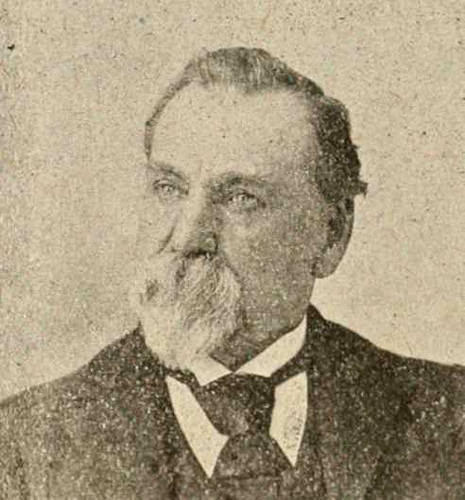
Image by Jim Surkamp
About a young man from Sharpsburg and Shepherdstown who war changed into an avenging angel of death but who, at the foot of the gallows, found God.- JS.
1. Andrew Leopold’s Forlorn Hope (1) – by Jim Surkamp With Author Steve French
POST: civilwarscholars.com/?p=13287 5422 words.
2. Author Steve French on Andrew Leopold (Video Transcript & Link)
POST: civilwarscholars.com/?p=13367 2880 words
VIDEO: www.youtube.com/watch?v=W_9FQvYpQRs&feature=youtu.be TRT: 25:23
Made possible with the generous, community-minded support of American Public University system, offering a quality, affordable, online education. Interpretations in civilwarscholars.com videos and posts do not in any way reflect modern-day poilicies and positions of American Public University System. More at apus.edu
Andrew Leopold’s Forlorn Hope (1) – by Jim Surkamp With Author Steve French
Made possible with the generous, community-minded support of American Public University system, offering a quality, affordable, online education. Interpretations in civilwarscholars.com videos and posts do not in any way reflect modern-day poilicies and positions of American Public University System. More . . .
What is a mother to do?
1_Polly Zittle’s 22-year old son
Polly Zittle’s 22-year old son, Andrew – soon-to-be-hanged – had much to consider in his solitary cell in the deepest sanctum of Fort McHenry prison near Baltimore.
Warmaker Andrew T. Leopold (also Laypole, Lepole, and Isadore Laypole) had in his hands a small book that he hoped he could put in the hands of another prisoner who, unlike him, would leave the prison upright and alive.
2_The crash of battle shells
The crash of battle shells, the crushing of bones like lath and cries, the groans, the clash of sabers, the shrieking thrill of musketry, the shattering in general – had unleashed something fierce in Andrew, native to the gun – this one-time crew mate on a lazy Potomac canal boat, who a young girl named Mary described as: “well built, straight as an arrow, not handsome of face, but with an honest, grave face that one knew how to trust.”
3_He wrote in his cell on the blank leavesGlimpses_of_Heaven_frontispiece
He wrote in his cell on the blank leaves of “Glimpses of Heaven or, The Light Beyond Jordan”: My dear and kind loving mother, It is with the deepest sorrow that your humble son has to report to you the sad news of my unfortunate and much unexpected fate which is deemed for me by now. But be of good cheer. I have good grounds to think and hope that I go to a better world for I have cast myself on the mercies of our God. Look to his Son, Jesus Christ, who died upon the cross without sin that we might have eternal life by believing in him. I hope to meet you and my two sisters in that bright land where sin and troubles are no more and there to show forth love to God and Jesus Christ, our redeemer. My fate is that of a felon. I know not the day that I have heard from a minister of the Gospel that I am not to suffer death on “Hangman’s Day,” but that is poor consolation to you but it will be a consolation to know that I went willing and prepared to meet my peace maker. . . I write this hoping you may get this book and hope the gentleman who finds it may send it to you. May God be merciful to you is the prayer of your unfortunate son and brother.” – Spirit of Jefferson., April 19, 1898, Image 1.
4_Robert Baylor, the prisoner there from Charlestown
Robert Baylor, the prisoner there from Charlestown, also condemned to death but who had his commuted less than ten days after Leopold’s last, wrote in his diary that Leopold’s “Glimpses” book had underlined by Andrew many pertinent poetic lines.
5_1859_Leopold’s River of Peace
1859: Leopold’s River of Peace:
6_Andrew’s quiet days just before the war years
Andrew’s quiet days just before the war years on the deck and towing the lines for a canal boat are best put by a fellow boatman in the year 1859:
7_Only the almost inaudible ripple of the boat
Only the almost inaudible ripple of the boat in the water, the distant click of the mules’ feet, the purring of the river, the hum of insects, and occasionally chirp of a bird broke the stillness. It was almost an ideal state of repose. The days drifted by as a dream and as I look back, it was a very tranquil dream, day ran into day, sunshine into sunshine, with no care or thought for the morrow. – Ella E. Clark (ed.).
1860: War Clouds Stir Leopold To Action:
8_Even after the John Brown Raiders
Even after the John Brown Raiders, their capture, trials in a Virginia Court and hangings – Shepherdstown’s Hamtramck Guards and all militias, hard-marched even more in anticipation.
Ahead was the November election for president. Locals didn’t support Lincoln, but they didn’t support Breckinridge either. They preferred a pro-unionist “conciliator,” named John Bell. The Shepherdstown Register editor, John Zittle, the second husband of Leopold’s mother, wrote July 14, 1860:
9_There are four candidates for president
“There are four candidates for president of the United States. The contest bids fair to be the warmest ever known in the political annals of our country. The troubled waters appear so threatening to engulf us we can invoke the blessings of providence to direct us through.”
10_The Fourth of July celebration
The Fourth of July celebration at Big Spring held together – barely. It began “with the Hamtramck Guards; Capt. V. M. Butler with the spirited notes of the fife and the inspired music of the drum . . . All hands did justice in relieving the table of it’s ponderous weight of provisions ‘done up brown’ by our friend Martin Yontz,” wrote Zittle. Capt. Heskitt had earlier marched the Guards, the town militia, from the town armory in full parade dress, each man having fifteen rounds of blank cartridges. Auctioneer George McGlincey lifted his glass to:
11_The Union may the ship of state ride safely
“The Union . . . may the ship of state ride safely into port over the troubled waters.” Then C. W. Yontz counter-toasted: “To Virginia, so long as she contains the graves of Washington, Jefferson, and a Madison, she must be faithful to her glorious title of Old Dominion.”
12_Lincoln is elected. War begins
1860-April, 1861 – Lincoln is elected. War begins April, 1861:
The crisis at Fort Sumter, South Carolina changed hot words to hot guns. Virginia voted to join the secession, pending a referendum. With the secession vote planned the next day on whether or not to secede, these same local militias marched that night towards Harper’s Ferry to take the Federal arsenal.
David Hunter Strother, who joined the Federal Army, wrote of the night of April 18th at Harpers Ferry after the Federal guard blew up much of the armory to keep militias from capturing the arms there. The vote on secession in Richmond had not been completed:
13_many more were on the way
As the night advanced, the streets became more crowded with people from the town and neighborhood. By one o’clock (early April 19th) the fires had sunk in ashes, when, gloomy, chilled and fatigued, I sought a bed at the house of an acquaintance . . I did not sleep soundly and was frequently disturbed during the night by the sound of drums and the tramp of passing squadrons. . . . many more were on the way. – p. 14.
Among those on the way to enlist that April 18th was firebrand soldier William A. Morgan from his Falling Spring manse outside Shepherdstown, who was quickly made Captain of Company F of the 1st Virginia Cavalry and, as was his nature would take part in most major fights in his state and walk away from many horses shot from under him as the way of the warring life until peace arrived again at last.
14_Leopold, the next day, joined Company F
Andrew Thomas Leopold, the next day, joined Company F under Captain Morgan’s command – and influence. Two other young men about Shepherdstown, both about Leopold’s age, had the same intent to enlist in Confederate regiments and nearly at the very same time. Nineteen-year-old carpenter, Jacob Hudson, and seventeen-year-old Charles Ed Entler, a ferry boatman – were making the trip to Harper’s Ferry to join Company B of the 2nd Virginia infantry regiment under the command of this unknown, odd Col. Thomas Jonathan Jackson, with long days just ahead of sorry-making, endless drill.
15_tutelage and charisma of Capt. Morgan
But Leopold had a ferocious role model in the tutelage and charisma of Capt. Morgan.
So they all prepared. In June, Confederates under Gen. Joseph Johnston left Harper’s Ferry, eased upriver towards Falling Waters, encamping for their awaited first war-time brush with the Federal Army nearby. Leopold would come face-to-face with another mesmerizing cavalryman, J.E.B. Stuart, who, in early July on the eve of battle, told all his men in this camp:
16_you are ignorant of this kind of work
“Attention!” he cried. “Now I want to talk to you, men. . . . you are ignorant of this kind of work, and I am teaching you. I want you to observe that a good man on a good horse can never be caught. Another thing: cavalry can trot away from anything, and a gallop is a gait unbecoming a soldier, unless he is going toward the enemy. Remember that. We gallop at the enemy, and trot away, always. p. 116.
– More . . .
Leopold and Morgan – the “Reckless Invincibles:”
17_the first Battle of Bull Run/Manassas
Soon at the first Battle of Bull Run/Manassas Leopold and Morgan were both among the 150 men in the 1st Virginia Cavalry – thundering galloping, steam-nostril, horse weight hurling toward the panicked red-scarlet uniformed men in the New York Zouaves fleeing to anywhere, raised sabers at them. William Blackford remembered: “The tremendous
18_horses at full speed broke through
impetus of horses at full speed broke through their line like chaff before grain.”
Leopold was “Seeing The Elephant,” the phrase of all soldiers for beholding war’s immediate horror. It was described right after this July, 1861 battle by Morgan to his wife: By dawn the conflict began with the booming of artillery and the sharp reports of musketry, mingled with the hoarse commands given by the officers, the screams of the dying horses and the groans of the wounded which kept up without intermission until moonlight. Two whole cavalry front ranks went down as they entered the enemy’s line, myself and company were in the very center of their ranks.
19_balls flying thick all around
The balls flying thick all around – apparently as thick as hail and yet strange to say there was no one killed – two or three of us were slightly wounded, myself among the number. . . My horse, George, behaved nobly, never flinching at any time.
. . . But Others Deserted:
20_Unlike Leopold, Charles Entler
Unlike Leopold, Charles Entler and Jacob Hudson both deserted from Co. B 2nd Virginia, returning home. Entler was already back home, once again a ferry boatman at Blackford’s Landing. His B company of the 2nd Virginia had passed through Shepherdstown and
21_set on fire on June 13, 1861, the wooden covered bridge
set on fire on June 13, 1861, the wooden covered bridge across the River near the ferry. Wrote his friend, Henry K. Douglas: I saw the glowing windows in my home on the hill beyond the river . . . I realized that war had begun. . . and my soul was filled with revengeful bitterness. Two days later, on June 15th Charles Entler was reported as having deserted, resuming his ferry boat duties.
22_Jacob Hudson would desert
Jacob Hudson would desert the following spring on March 15,1862, also re-appearing in Shepherdstown, stricken from the rolls and out of uniform.
23_Leopold, though, warmed in the glow of a war-maker
Leopold, though, warmed in the glow of a war-maker:
24_Leopold wrote his mother from Camp Ashby
Leopold wrote his mother from Camp Ashby near Harrisonburg that he had a skirmish near Luray, where with sixteen men he routed a Yankee Camp, capturing 18 prisoners, wounding 12 and killing 5, capturing ten thousand dollars worth of medicines, clothing and supplies. – Martinsburg Statesmen (from the Shepherdstown Register), May 23, 1895.
This may have been an event May 6, 1862, reported with some differences by Federal Maj. Gen. Nathaniel P. Banks, U. S. Army:
May 7, 1862. The Fifth New York Cavalry had a sharp skirmish with Ashby’s cavalry (7th Virginia Cavalry-JS) yesterday near Harrisonburg. They (The Federals-JS) made a succession of most spirited charges against superior numbers, killing 10, wounding many, and capturing 6 rebels. Their conduct gave the highest satisfaction. Their chief weapon was the saber. The enemy does not show himself except by cavalry. – p. 456.
August 30, 1862 – Leopold The Avenger at 2nd Manassas/Bull Run:
25_Sergeant Leopold, of the Twelfth Virginia Cavalry, was in the thickest of the fight
Sergeant Leopold, of the Twelfth Virginia Cavalry, was in the thickest of the fight and acted most gallantly during its continuance. He was wounded in three places. – Official Report by his Brigade Commander Brig. General Beverly Holcombe Robertson – pp. 746-747.
Beverly_Robertson Image of B. H. Robertson.
800px-Second_Bull_Run_Aug30_1700 Source of map. Click on map to enlarge.
The cavalry brigade of Brig. Gen. Beverly H. Robertson and the regiment of Col. Thomas Munford raced to the extreme right of the Confederate position, hoping – with the support of four batteries of horse artillery – to block the retreating Union men at Lewis Ford.
26_I charged the regiment on the hill and drove them back
Col. Asher W. Harman of the 12th Virginia Cavalry, Leopold’s and Morgan’s regiment, wrote:
At Manassas, on August 30, about 4 p.m., I was ordered, with six companies of my regiment (A, C, D, E, F, and H), to support the Second Virginia Cavalry. I found the enemy occupying the hill to the right of the Lewis house, with the First [West] Virginia Cavalry, supported by a New York and the First Michigan Cavalry, drawn up about 200 yards in their rear.
I charged the regiment on the hill and drove them back on their support, which were in quick succession broken and driven back in complete disorder. I pursued them over the run and as far as the pike near the stone bridge, capturing many prisoners, among them Colonel Brodhead and Major Atwood, of the First Michigan Cavalry, the former severely wounded. My loss was 6 men wounded. – p. 752.
Author Eric Wittenberg wrote:
The men of Robertson’s brigade formed into line and, (Harman wrote) “in wedgelike form, dashed headlong toward the battle line of blue; and as the apex of this swiftly moving mass was about to pierce the center of their line, it wavered for an instant, then broke and fled in every direction.”
27_The charge of the 12th Virginia crashed into the West Virginians
The charge of the 12th Virginia crashed into the West Virginians and drove them back upon their reserves. As one member of the 12th Virginia later wrote, the West Virginians “broke and ran and we were after them with pistol and saber.” A member of the 4th New York noted, “The Secesh used their revolvers with a determination to slaughter some of our lads” Capt. William Porter Wilken of the 1st West Virginia was left to cut his way out, and only barely escaped capture when his horse bolted. He recorded, “I think nothing of charging against equal numbers, but to charge into a whole army of cavalry and infantry and artillery and see your comrades mowed down by by their sabres and the deadly fire of their musketry and cannon, is not particularly funny.”
The savage onslaught of the 12th Virginia broke the Union line and drove it back toward Bull Run.
28_Brodhead refused, the Confederate shot and mortally wounded the Yankee officer
Adjutant Lewis Harman of the 12th Virginia met Brodhead near the Lewis Ford. Harman demanded Brodhead’s surrender and, when Brodhead refused, the Confederate shot and mortally wounded the Yankee officer. Harman rode off with Brodhead’s horse, saddle, pistols, and sabre. Brodhead received a deathbed brevet to brigadier general for his valiant stand at the Lewis Ford. . . . the 12th Virginia pursued as far as the Warrenton Turnpike. In his official report of the campaign, Stuart pointed out that the melee at the Lewis Ford “was of remarkably short duration.”
The fight at the ford, however, had been severe. Robertson’s men suffered five men killed and 40 men wounded, including Munford. One member of the 12th Virginia, a Sergeant Leopold, was wounded in three places during the furious clash at Lewis Ford. Buford’s losses were heavier, with approximately 300 casualties. – pp. 746-747.
29_Robertson’s regiments swept down upon a force greatly outnumbering them
Stuart exulted in his official report of the campaign that at Lewis Ford, “… over 300 of the enemy’s cavalry were put hors de combat, they, together with their horses and equipments, falling into our hands.” Stuart bragged about his victory, stating “Nothing could have equaled the splendor with which Robertson’s regiments swept down upon a force greatly outnumbering them, thus successfully indicating a claim for courage and discipline equal to any cavalry in the world..” – Gen. J.E.B. Stuart’s Report to Gen. Robert E. Lee February 28, 1863, OFFICIAL RECORDS: Series 1, vol 12, Part 2 (Second Manassas) p. 737.
Winslow_Homer_Sitting_Federal
Leopold Becomes an Avenging Scout and Bushwhacker:
September – late October, 1862: Leopold, still fired by the battlefield, recuperates.
30_J.E.B.Stuart and his staff are resting at The Bower
31_overlooking the Opequon Creek
Confederate Cavalry General J.E.B.Stuart and his staff are resting at The Bower overlooking the Opequon Creek and will remain there until late, October, 1862.
32_Probably under the great oaks there, Stuart discussed
Probably under the great oaks there, Stuart discussed plans and met with Redmond Burke and Andrew Leopold to make them mail-carriers, horse-thieves, conscriptors, and his “eyes” along the rivers around Jefferson County.
33_Stuart discussed plans and met with Redmond Burke and Andrew Leopold
Fear Up Harsh, by Tony Lagouranis
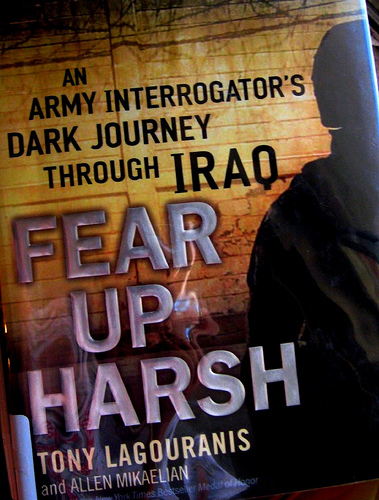
Image by elycefeliz
www.dailykos.com/story/2008/12/1/22751/5109/999/667172
Death crosses the line, but you know, torture doesn’t.
— Spc. Tony Lagouranis (Ret.) in Fear Up Harsh
Tony Lagouranis never expected to become a torturer. He didn’t even really want to be a soldier. But at 30, he had a facility with languages and wanted to learn Arabic. When he started his Army training, the Twin Towers were still intact and no one expected the US to go to war in Iraq. Even when Lagouranis chose to specialize as an interrogator, his Army instructors implied that the Iraqis he questioned would be friendly and cooperative. "The last experience we had had with interrogation in the military was in the first Gulf war, when most of the prisoners were completely willing. They said, ‘Ask them a question and they’ll tell you what you wanted to know.’"
But by the time Lagouranis arrived in Iraq, the Army knew better. Vast numbers of suspects were being rounded up, and they weren’t talking. His superiors at the detention facility where he worked in Mosul gave him a list of authorised interrogation tactics – some might say, torture tactics.
. . . "Fear up harsh" in principle meant verbally intimidating a prisoner, but came to include sleep deprivation, induced hypothermia and binding, with all levels of command complicit. Convinced such methods did not work and disturbed by his own behavior, Lagouranis felt "the feeble voice of my deeply suppressed morality trying to be heard."
It is, because you really do feel like you’re outside of normal society, you know? Your family, your friends, they’re not there to see what’s going on. And everybody is sort of participating in this I don’t know what — psychosis, or for want of a better word, this delusion about what you’re doing there. And what becomes OK as you look around gets broken down, you know? And I mean, I felt it myself. I remember being in that shipping container in Mosul. You know, I’d been with a guy all night long. And you just feel so isolated, and morally isolated, that you felt like you could do whatever you want to this guy, and maybe you even want to. But then in the daylight when I would talk to the other soldiers or see other prisoners, that was unacceptable to me. …
We weren’t concerned with intel anymore; we just wanted confessions from people. So some of these people that we had in there, they weren’t even being accused of anything that we could have gotten intel out of. (PBS Frontline)
. . . This book is also a very graphic commentary on widespread and arbitrary torture and prolonged detention throughout Iraq, continuing after the Abu Ghraib scandal broke, and the use of torture and detention regardless of someone’s guilt, innocence, or suspected or useful intelligence (torture by convenience and habit).
Remarkable to me for the large-scale strategy of "round up everyone in a geographic area, interrogate/torture them, and then send them to prison when they don’t have any information;" the lack of real consequences for whistleblowers and yet, the lack of whistleblowers; Otherness, US vs. Iraqi (all Iraqis– the people meant to be "liberated?") mentality.
From Sunday’s Washington Post, the long term effect of fear up harsh, the tactic:
I learned in Iraq that the No. 1 reason foreign fighters flocked there to fight were the abuses carried out at Abu Ghraib and Guantanamo. Our policy of torture was directly and swiftly recruiting fighters for al-Qaeda in Iraq. The large majority of suicide bombings in Iraq are still carried out by these foreigners. They are also involved in most of the attacks on U.S. and coalition forces in Iraq.
It’s no exaggeration to say that at least half of our losses and casualties in that country have come at the hands of foreigners who joined the fray because of our program of detainee abuse. The number of U.S. soldiers who have died because of our torture policy will never be definitively known, but it is fair to say that it is close to the number of lives lost on Sept. 11, 2001. How anyone can say that torture keeps Americans safe is beyond me — unless you don’t count American soldiers as Americans. — Matthew Alexander, leader of Special Forces interrogation team in Iraq, Washington Post
books.google.com/books?id=ypB4wl8YyG4C&pg=PA120&l…
www.sfgate.com/cgi-bin/article.cgi?f=/c/a/2008/12/12/MNAR…
Top Bush officials OKd torture, report says
"The abuse of detainees in U.S. custody cannot simply be attributed to the actions of ‘a few bad apples’ acting on their own," the panel concluded. "The fact is that senior officials in the United States government solicited information on how to use aggressive techniques, redefined the law to create the appearance of their legality, and authorized their use against detainees."
www.theatlantic.com/doc/200609/fallows_victory/5
Documents captured after 9/11 showed that bin Laden hoped to provoke the United States into an invasion and occupation that would entail all the complications that have arisen in Iraq. His only error was to think that the place where Americans would get stuck would be Afghanistan.
Bin Laden also hoped that such an entrapment would drain the United States financially. Many al-Qaeda documents refer to the importance of sapping American economic strength as a step toward reducing America’s ability to throw its weight around in the Middle East.
. . . Higher-priced oil has hurt America, but what has hurt more is the economic reaction bin Laden didn’t fully foresee. This is the systematic drag on public and private resources created by the undifferentiated need to be “secure.”
The effect is most obvious on the public level. “The economy as a whole took six months or so to recover from the effects of 9/11,” Richard Clarke told me. “The federal budget never recovered. The federal budget is in a permanent mess, to a large degree because of 9/11.” At the start of 2001, the federal budget was 5 billion in surplus. Now it is 0 billion in deficit.
. . . The final destructive response helping al-Qaeda has been America’s estrangement from its allies and diminution of its traditionally vast “soft power.” “America’s cause is doomed unless it regains the moral high ground,” Sir Richard Dearlove, the former director of Britain’s secret intelligence agency, MI-6, told me. He pointed out that by the end of the Cold War there was no dispute worldwide about which side held the moral high ground—and that this made his work as a spymaster far easier. “Potential recruits would come to us because they believed in the cause,” he said. A senior army officer from a country whose forces are fighting alongside America’s in Iraq similarly told me that America “simply has to recapture its moral authority.”
. . . America’s glory has been its openness and idealism, internally and externally. Each has been constrained from time to time, but not for as long or in as open-ended a way as now. . . .




